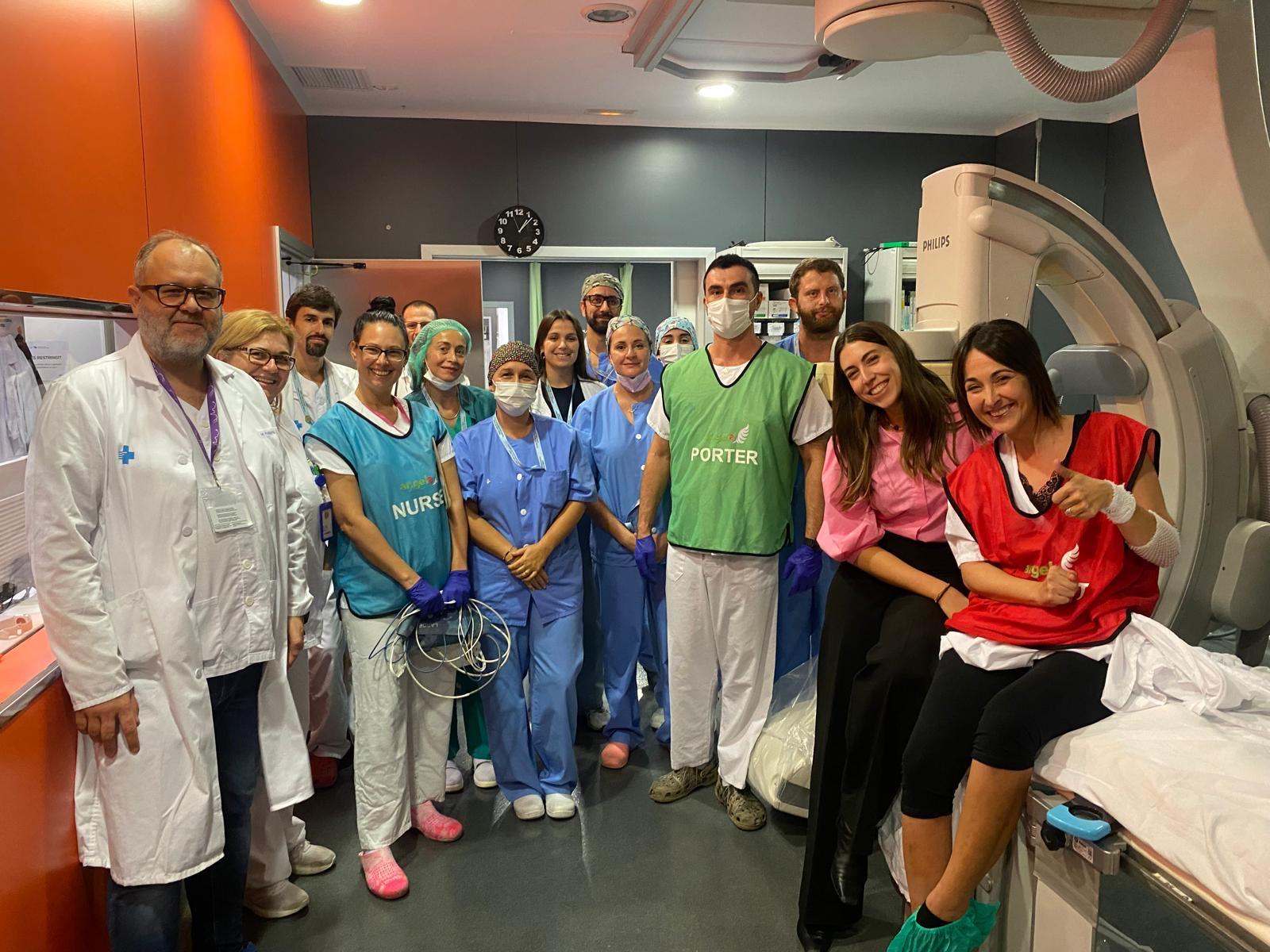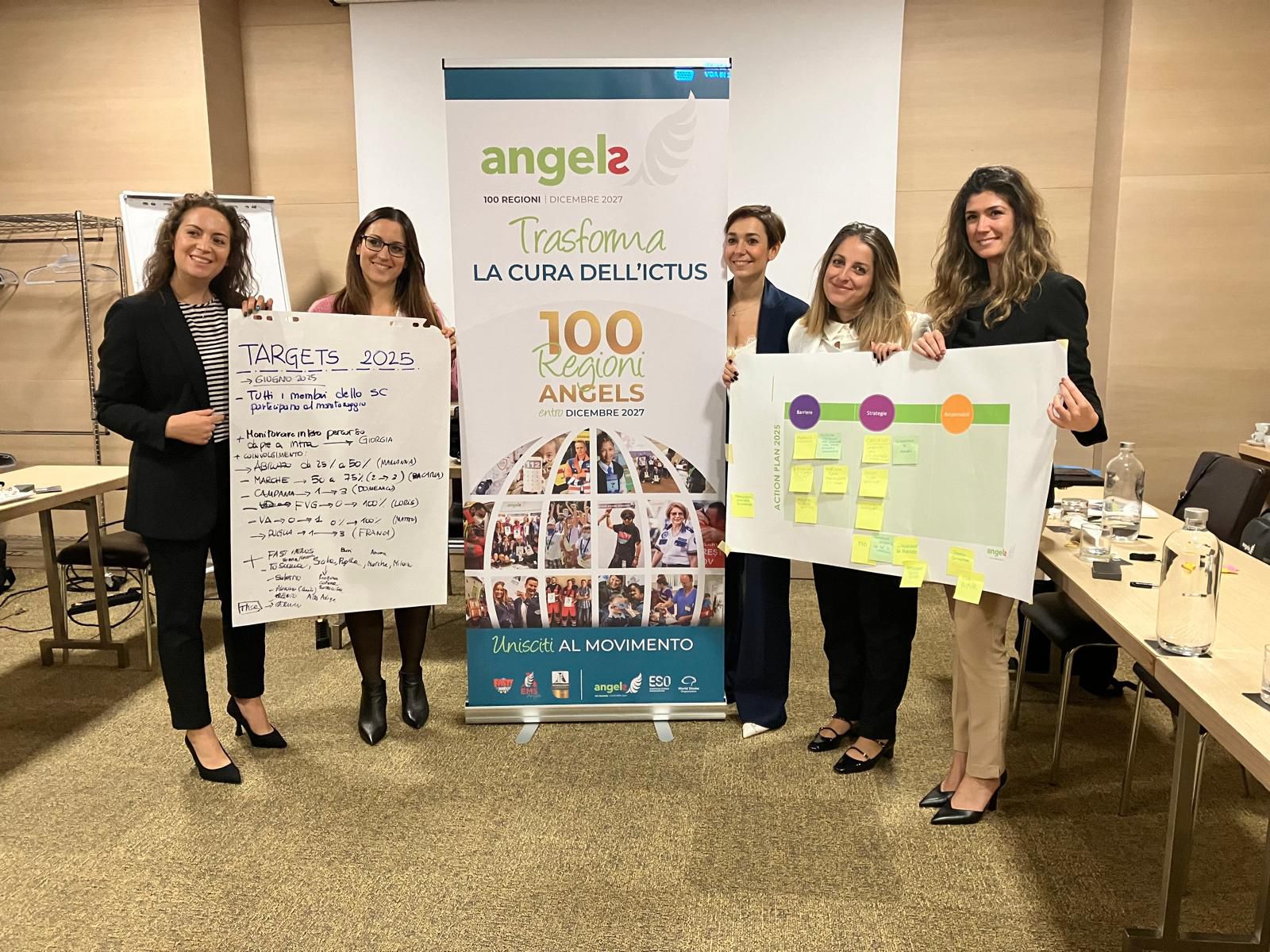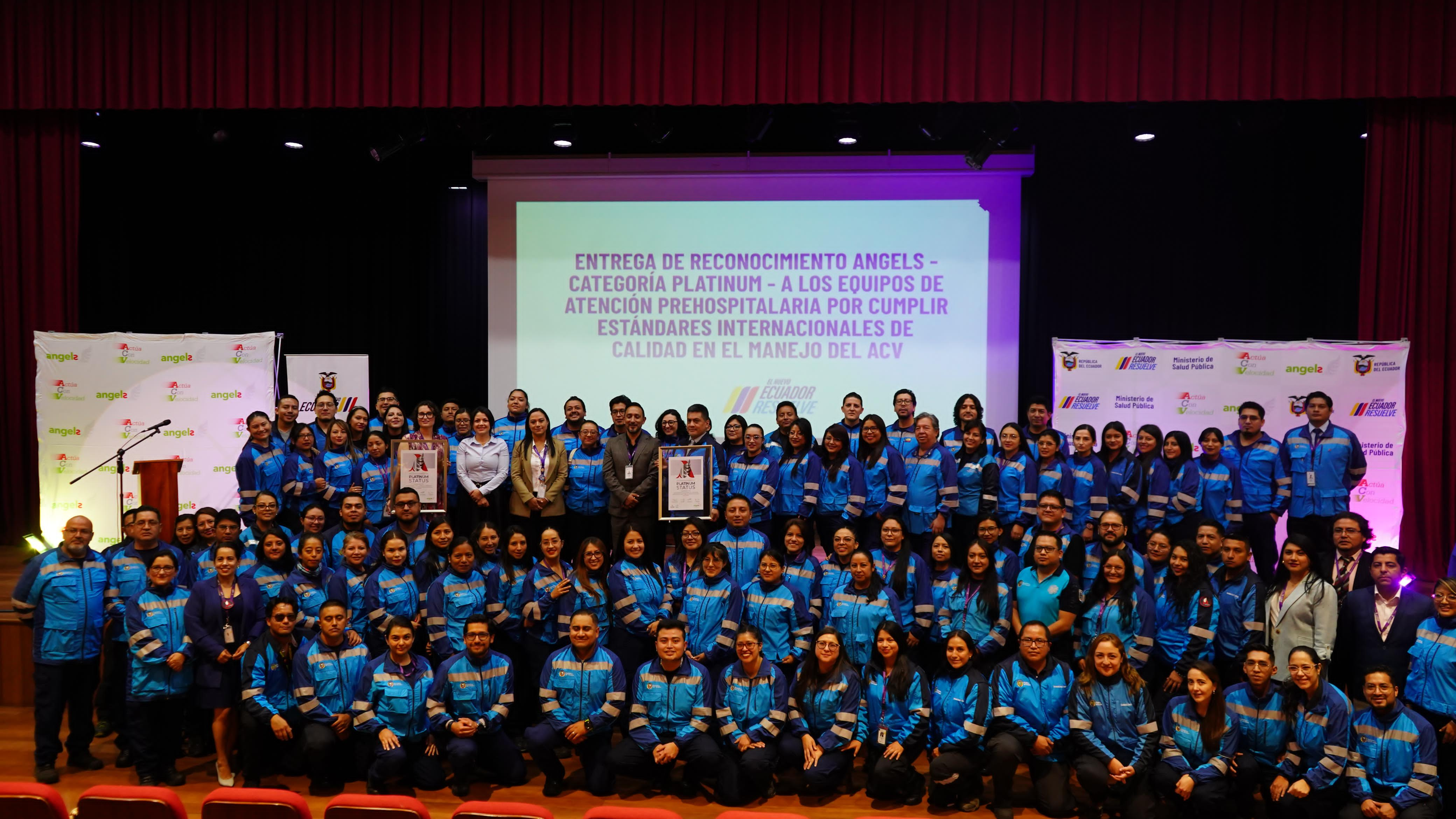No two days are the same, and there’s no predicting whether they will end in happiness or heartache. Winners of the first EMS Angels Awards share stories with happy endings.

The first ambulance in recorded history was wheeled onto a battlefield in May 1487 during the Siege of Málaga in southern Spain. Over 500 years later, on another battlefield created by the Covid-19 pandemic, nine of Europe’s top ambulance teams converged on Lisbon, Portugal, to receive the first EMS Angels Awards for excellence in prehospital stroke care.
Francisco Arande was there, to collect an award on behalf of Cordoba 061 EMS, and so were his compatriots Antonio Iglesias from Galicia, Nicolas Riera from Madrid and Montse Gorchs from Barcelona.
For Spain’s awesome foursome it was their second award of 2021. Just a couple of months earlier they’d received the prestigious Spirit of Excellence Award
for outstanding services to stroke care. This time they were sharing the stage with colleagues from the Czech Republic, Slovakia and Romania.

Now he is playing football
Francisco Arande has seen many stroke patients in his 29 years at the Cordoba 061 EMS service in Andalusia, Spain, but he will never forget the 14-year-old boy whose parents summoned an ambulance at 4am after he suffered convulsions.
“It was the first peadiatric stroke I’d ever seen,” says the EMS physician whose friends call him Paco.
The boy had been complaining of a headache, his parents told the team from Cordoba when they arrived, and when a neurological evaluation revealed he was experiencing double vision, Paco made the call to activate the stroke code and prenotify the nearest stroke-ready hospital.
“When we arrived, the strokeologist was waiting for us. We went directly to CT, and after it was confirmed that the boy had suffered a huge hemorrhagic stroke, we stretchered the patient to the operating room for surgery.
“After one month in the pediatric ICU, it was incredible to see this boy walking. Now, he is playing football.”

A baby girl named Eliška
“There are happy and sad endings in our work, but the biggest satisfaction is when the patient returns to normal life,” says Jana Kubalová whose team, the South Moravian Medical Rescue Service, scooped one of the Czech Republic’s two diamond awards, while Michal Mašek (with Prof Diana Cimpoeşu and Jan van der Merwe above) collected platinum on behalf of the Pardubice region.
“However, we have a miraculous story. In April 2019, we were called out to attend to a young woman in the 16th week of her pregnancy who had suffered a stroke with suspected bleeding into brain. She was intubated and transported via helicopter to St Anne’s University Hospital in Brno where she was declared brain dead on arrival.
“Thanks to great intensive care in hospital, 117 days later a healthy baby girl was born and named Eliška.”
Qualifying to win
Delivering miracles takes hard work and dedication, and the EMS Awards provide a mechanism to recognise and reward Europe’s top ambulance teams for raising the bar in prehospital stroke care.
The award is based on the same principles as the ESO Angels Awards for hospitals, says Angels consultant Robert Havalda who co-ordinated the process of establishing an expert steering committee, developing criteria and collaborating with the stroke care quality registry RES-Q to collect and evaluate data.
Like the hospital awards, EMS Awards are allocated at three performance-based levels – gold, platinum and diamond – but benchmarking begins even earlier when the candidates assess their own eligibility for
the awards programme. To be considered, they must have a stroke protocol and education programme in place, use specific stroke scales to assess patients, and collect and record performance data in respect of at least 30 consecutive stroke patients in a given quarter.
A tool for improvement
That his team was among the first in Europe to receive the award makes him happy, says Matej Polák, director of EMS ZaMED in Slovakia. “But what makes me
even happier is that these awards were introduced in Europe. When the ESO Angels Awards were introduced, hospitals were instantly given important feedback about the quality of their stroke care and made aware of the need for constant improvement. I’m absolutely certain that the same mechanism of feedback-driven improvement will also benefit the EMS sector.”
Acknowledging the best-performing prehospital stroke care providers is just one of several goals that include quality monitoring, standardisation and optimisation of prehospital stroke care. At a practical level, the awards 11 process is a tool for identifying and troubleshooting problem areas.
“Rewarding excellence is important, but in the end award status matters less than recognising opportunities for improvement,” Robert says.
And literally nothing matters more than time.

Counting the minutes
Eight minutes. That’s how long it took the medical rescue service of the Moravian-Silesian region to reach the address where a colleague’s mother had suffered a severe stroke.
In Lisbon to collect a diamond award, stroke-related prehospital education pioneer Petr Jaššo (with Prof Diana Cimpoeşu and Jan van der Merwe above) remembers it exactly. His team spent 11 minutes on the scene and took just 14 minutes to reach the hospital where the stroke team had been prenotified. Thanks to this swift action, this very important patient was walking and talking within weeks, with the prospect of returning to her pre-stroke life.
Time is brain and as Romania’s Dr Rodica Alis Grasu might concur, nothing makes the seconds tick by faster than when the patient is one of your own. The general manager of Ambulance Service Bucharest Ilfov (Sabif) recalls a recent case when a colleague suffered an ischemic stroke. “The stroke was diagnosed right away and the nearest stroke-ready hospital prenotified. The patient reached the hospital in a very short time and after a CT scan followed by thrombolysis was returned healthy to his family and to society.”

“We’re putting people together”
For Sabif the award came swiftly after their participation in a prenotification pilot programme aimed at driving down Romania’s median door-to- treatment time for acute stroke. Prenotification turned out to be a game changer. The award brought a much-needed boost of confidence in uncertain times and propelled Bucharest’s heroes into the heart of an international EMS stroke community for which Lisbon was the birthplace.
Less than 20 hours after Prof Diana Cimpoeşu, Eusem chair of prehospital education, presented the inaugural EMS Angels Awards on 28 October, a historic meeting took place in which the Lisbon gathering of EMS stroke experts discussed barriers, innovation and opportunities for improvement.
It is this spin-off of the awards that Robert Halvada is most excited about. “In the past there may have been contact between teams inside the same country, but not across borders,” he says.
“We’re putting people together and this is just the beginning.”



